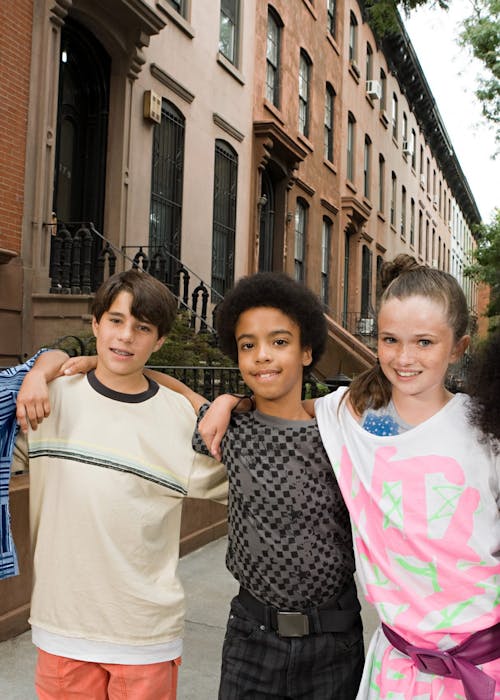

City’s FY 2020 Budget Puts Children First
Insights
June 21, 2019

On June 19, 2019, the City Council approved a CFY 2020 Adopted Budget that clearly puts the needs of the city’s children and families first.
From addressing pay inequity among the early education workforce, investing in summer camp and afterschool, census outreach, social workers in schools, and improved reimbursement for human service contracts there are many positives in this budget. We’ve highlighted a few of them below.
Early Education Salary Parity
At last week’s budget handshake, Mayor Bill de Blasio and Speaker Corey Johnson promised a pathway to salary parity for the city’s early education workforce. Labor negotiations are actively underway and are anticipated to conclude in the coming weeks.
We want to take this opportunity to thank the Administration, Speaker Corey Johnson and members of the City Council for their commitment to salary parity for early educators.
With help of CCC and our e-advocates and partnering organizations in the Campaign for Children, we ensured that salary parity would be a key priority in budget negotiations this year. The need for salary parity was positioned not just as a fight for wage fairness, but also critical to ensure the creation of a stable and high-quality birth-to-five early education system.
Increased Social Workers for Schools
The 2020 Adopted Budget will also increase the number of social workers in schools with high numbers of students living in homeless shelters or transitional housing — through a program called Bridging the Gap – and also increases social workers in other high-need schools.
New York City’s family homelessness crisis is resulting in an increased number of students in temporary housing. CCC and partner organizations in the Family Homelessness Coalition asked that the city increase the number of Bridging the Gap social workers from 69 to 100 to meet the increased demand, and we applaud the City Administration and City Council for including needed investments in the Adopted Budget. Furthermore, resources for the Bridging the Gap initiative are now baselined in the budget, saving it from the annual uncertainty of whether it will be funded year to year.
The Adopted Budget also includes funding for 85 social workers in middle schools and another 100 social workers focused on the behavioral health needs of students.
“
The agreement illustrates the positive impact that our collective voices can make. Budget documents are a statement of values and the FY2020 Adopted Budget makes the right investments to meet the needs of and improve outcomes for New York’s children and families.
“
After-School Programming
As a result of CCC’s and the Campaign for Children’s advocacy, the Adopted Budget restores and baselines funding for COMPASS after-school programs and adds an additional 4,000 after-school slots for elementary school students. Importantly, the Adopted Budget also restores funding for summer programming for 22,800 middle school students through the Schools Out New York City (SONYC) program.
Breakfast in the Classroom
Funding for Breakfast in the Classroom was also saved. The program was facing a $6 million cut in the 2020 Executive Budget. However, funding for this essential program was fully restored in the FY 2020 Adopted Budget. Shout out to our e-advocates and our colleagues at No Kid Hungry New York and all other anti-hunger advocates who helped secure this restoration.
2020 Census Funding
The Adopted Budget also sets aside $40 million for 2020 Census Community Outreach. New York has a large hard-to-count population and young children are particularly underrepresented in the Census. We applaud the City Council and the Administration for prioritizing funding for Census outreach to ensure that all New York residents are counted. Thank you to NY Counts 2020 and CCC’s e-advocates for ensuring this funding was made part of the budget.
Addressing Indirect Costs in Human Services Sector
The Adopted Budget also prioritizes the needs of nonprofits in the health and human service sectors. The budget codifies the city’s guidance on reimbursement of indirect costs (e.g., administration, rent, insurance liability etc.). In doing so, it creates a mechanism through which the City Council can monitor how the city approaches reimbursement and hold the city accountable with the expectation that resources will be modified into the budget. We applaud the Administration and the City Council for this bold step and thank the Human Services Council and HSC’s member agencies for many years of advocacy.
Check out our CFY 2020 Adopted Budget Summary
This is far from an exhaustive list of the positive items that were included in the budget. For a full summary, go here.
Thanks to all of you who took action leading up to the CFY 2020 Adopted Budget; your calls, letters, and rallying made a difference. The agreement illustrates the positive impact that our collective voices can make. Budget documents are a statement of values and the FY2020 Adopted Budget makes the right investments to meet the needs of and improve outcomes for New York’s children and families.



